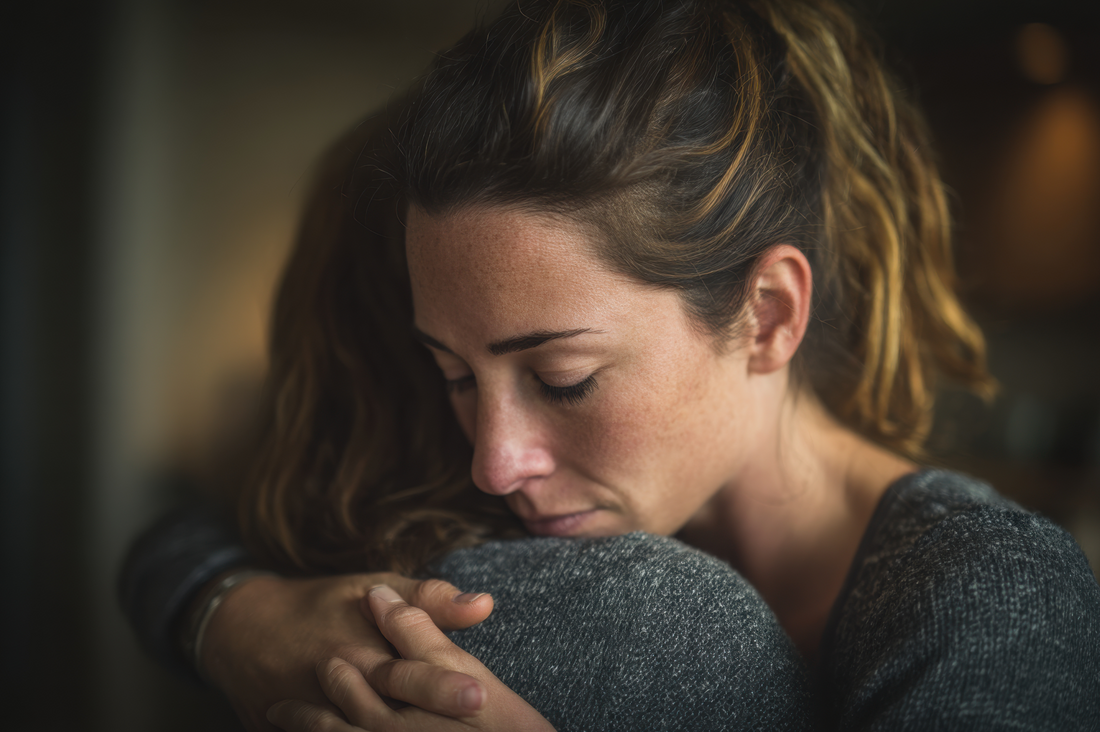
Do You Ever Feel Cold-Hearted? How to Grow in Empathy
Share
Have you ever caught yourself thinking, “Maybe I’m just cold-hearted”? Many women in sobriety quietly carry that fear. They wonder if something is missing inside of them—if they’re too shut down, too guarded, or too uncaring to ever feel what others seem to feel so easily.
If this sounds familiar, hear me when I say this: you are not broken. You are not heartless. What you may be experiencing is a very common response to childhood trauma. When we grow up in environments where our feelings weren’t safe—whether through abuse, neglect, or simply not being seen—our hearts often protect us by going numb. Shutting down empathy wasn’t a flaw; it was survival.
The good news? Empathy is not fixed. It’s not something you either have or don’t. Empathy is a skill, a muscle, something you can grow and strengthen over time. And sobriety gives us the space and safety to begin that work.
What It Means to Feel “Cold-Hearted” in Recovery
Feeling “cold” or “uncaring” doesn’t mean you lack compassion—it often means you haven’t had the tools to express it yet. Many women in sobriety discover that empathy feels blunted at first. That’s not a life sentence; it’s a signal that healing is still unfolding.
Why Childhood Trauma Makes Empathy Harder
Childhood trauma shapes how we connect to others. If you grew up in an environment where emotions weren’t safe, your nervous system may have learned to shut down to protect you. This can carry into adulthood, making empathy feel out of reach.
The key truth: empathy is a learned skill. If you didn’t learn it as a child, you can still learn it now. Sobriety gives you the tools and community to practice it in safe, gentle ways.
Why Empathy Is the Heartbeat of Sobriety
- Empathy breaks isolation. Addiction thrives on secrecy and shame. Empathy—both given and received—reminds us that we are not alone.
- Empathy heals relationships. Sobriety often comes with broken trust. Empathy helps rebuild connection with family, friends, and ourselves.
- Empathy supports self-compassion. The more we practice empathy for others, the more natural it becomes to extend kindness inward.
When empathy grows, sobriety becomes more than “not drinking or not using.” It becomes a way of living that restores peace, joy, and connection.
5 Ways to Grow Empathy in Sobriety
- Listen at meetings. Empathy often begins with listening. When another woman shares her story, instead of comparing, notice the “me too” moments. Those echoes are seeds of empathy.
- Journal from another perspective. Write about a recent situation through someone else’s eyes. What might they have felt? What pressures or fears could have shaped their actions? Perspective-taking is a proven way to strengthen empathy.
- Practice one daily act of kindness. Text a friend who’s struggling, hold space for someone without fixing them, or choose patience over irritation. Small acts done consistently stretch your empathy muscles.
- Learn self-empathy. Many of us are harder on ourselves than anyone else. Try talking to yourself as you would a friend in recovery. When you stumble, remind yourself: “This is part of the process. I’m learning.”
- Seek safe, supportive spaces. Therapy, recovery groups, or women’s circles model empathy in action. Surrounding yourself with people who practice empathy helps you absorb and reflect it.
Boundaries vs. Empathy: Why We Need Both to Heal
It’s important to remember that empathy doesn’t erase boundaries. Boundaries keep us safe; empathy keeps us human. Together, they create the soil where healing and healthy relationships can grow.
From Trauma to Tenderness: Learning Empathy Step by Step
If empathy feels foreign to you, it may simply mean you never had the chance to learn it in childhood. That does not make you cold-hearted. It means your story includes pain—and sobriety gives you the chance to rewrite that story.
Each act of listening, kindness, or perspective-taking is a step from trauma toward tenderness. Sobriety is the path where empathy can blossom, even if it once felt impossible.
A Gentle Reminder: It’s Never Too Late to Learn Empathy
If you’ve ever felt distant, disconnected, or afraid that you’re incapable of empathy, please remember this: it’s never too late to grow. Sobriety gives you a new start. With every meeting you attend, every story you listen to, every act of kindness you practice—you are already building a softer, stronger heart.
One conversation, one choice, one “me too” at a time—you’re not cold-hearted. You’re healing. And empathy will follow.


